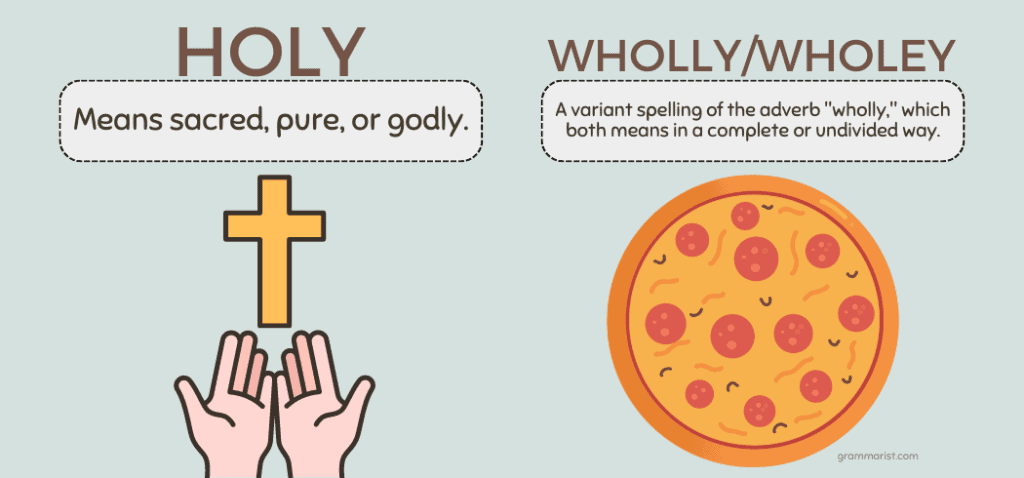Holy moly, there are a lot of words that sound the same but actually have totally different meanings. One of the most confusing sets of words is “holy,” “wholey,” and “wholly.” If you find yourself mixing these up all the time, don’t fret! I’m about to break down the differences between these three words so you can use them correctly in your writing.
Holy vs. Wholey vs. Wholly: What’s the Difference?

“Holy,” “wholey,” and “wholly” are what we call homophones, which means they sound the same but have different definitions and uses. “Holy” means sacred or pure and derives from the Old English word halig, which means sacred or godly. “Wholey” is just a variant spelling of the adverb “wholly,” which both mean in a complete or undivided way.
- A pope is a holy man.
- That article is wholly a lie. (meaning the entire article is false)
- I am wholey yours, forever and always.
Is It Wholey or Wholly?
Some people say “wholey” is a misspelling of “wholly,” but it’s actually an alternative spelling. But “wholly” is more common and widely accepted in most forms of written text.
When to Use Wholey
While Merriam-Webster and other sites claim “wholey” is a correct spelling, some sources argue against that fact. So, if you can, try and avoid using the spelling of “wholey” in your writing. But, if you must, reserve it for informal situations.
When to Use Wholly
You can use the word “wholly” when describing something as a whole or in full. “I am wholly invested in this idea,” or “you are wholly incorrect in thinking that I would do that,” etc.
When to Use Holy
Now, “holy” is a completely different word altogether. Actually, you could even say it’s a…wholly different word (I’m too clever for my own good).
You can use it to describe something sacred or divine. As an example, “The holy book is revered by many” or “The holy water is used in religious ceremonies by priests and popes.”
Wholey and Wholly Examples in a Sentence

- I am wholly uninterested in yet another TV show about zombies.
- The guy I dated in high school was wholly devoted to training for the Olympics.
- She was wholly convinced he was lying, so I supported her decision to leave him.
- I am wholly satisfied with the service I received, so I’m leaving you a rave review.
- The company is wholly owned by its founder, so they have a controlling interest when it comes to the image of the store.
- The team was wholly focused on winning the championship, which is why they’re undefeated.
Holy Examples in a Sentence
- We watched as the priest blessed the holy water before using it in the service.
- The holy site is visited by thousands of people every year, and I can’t wait to go and see it for myself.
- I have to admire the holy man who spent years meditating in the mountains. I could never do that.
Holy Moly
The differences between “holy,” “wholey,” and “wholly” are easy to remember when you have it broken down for you like this. Just keep in mind that “holy” is used to describe something sacred, but “wholly” and “wholey” are meant to describe things that are whole. But try and use “wholly” when you can, as it’s more accepted around the world.
Enjoyed reading about homophones? Check out some others we covered:
